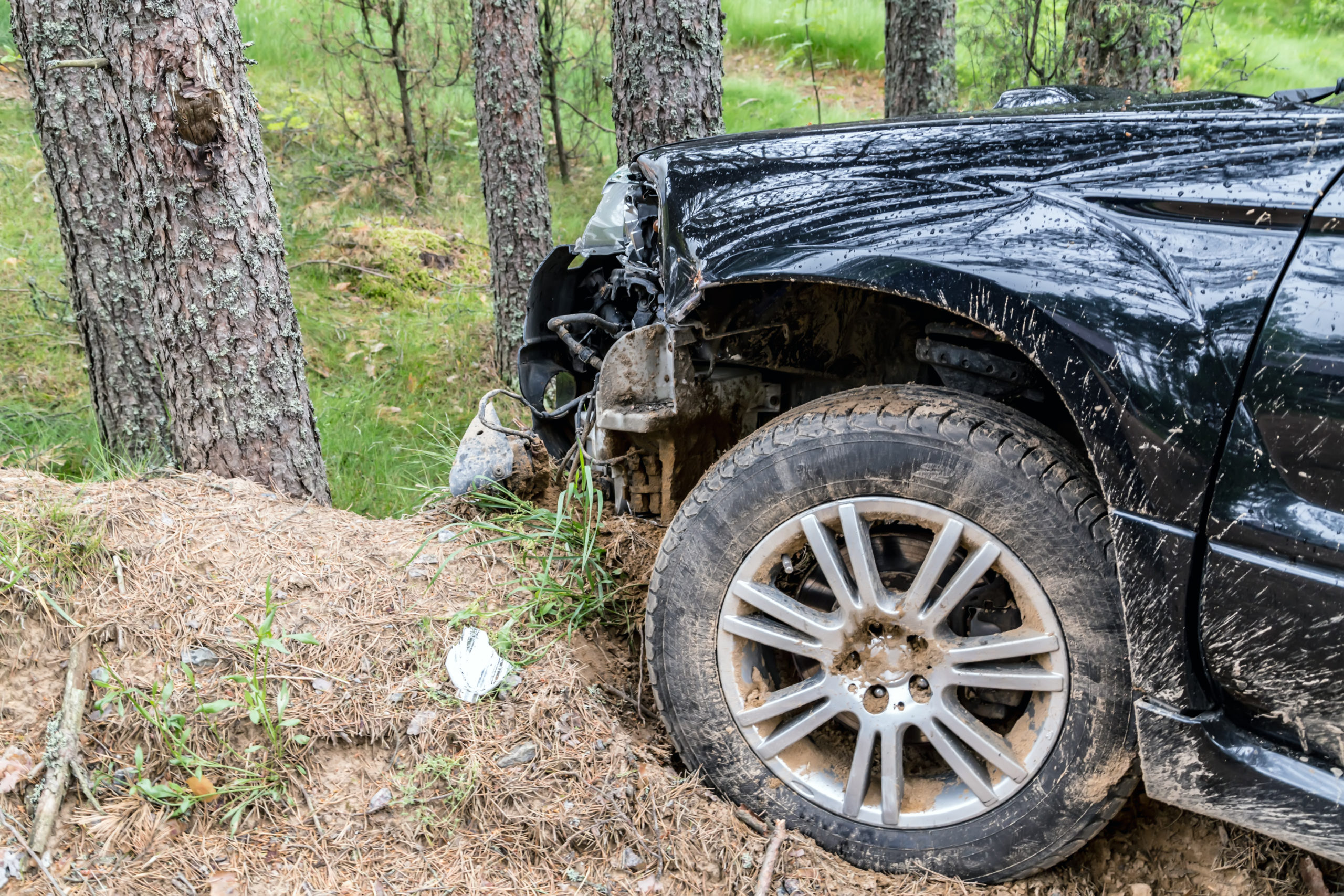
Just like any other state, a driver in New Jersey has to maintain insurance coverage for their vehicles if they wish to drive them legally. Normally, such insurance coverage would allow a driver to sue a liable party for medical expenses, property damage, and similar expenses in the aftermath of an accident. However, New Jersey has chosen to adopt what are known as no-fault laws. These laws limit the right to sue after an auto accident for medical benefits in exchange for what is known as personal injury protection (PIP).
What do PIP Benefits Cover?
To start, let’s establish some general principles of what PIP benefits will pay for. Depending upon the choice of coverage, PIP benefits are payable by an insurer to cover medical expenses, lost wages, essential services, and death benefits up to the selected coverage amount, which reduces the need for litigation to recover costs of personal injury. This applies even when the insured is only a passenger in another individual’s vehicle.
However, exclusions may exist in these policies, which mean that you cannot use PIP benefits to cover the costs of certain procedures and services. New Jersey Manufacturers Insurance v. Specialty Surgical Center of North Brunswick is an excellent case for the jurisdiction of New Jersey. The costs of an ambulatory surgical center’s procedures were not covered under the insured’s policy as they were not listed as reimbursable, and the policy did not allow unlisted items and services to be reimbursed. It is good practice to review your insurance policy with a practiced legal professional to understand if similar exceptions are present.
What Laws Cover Auto Insurance Policies?
New Jersey’s regulations and statutes are found in New Jersey Automobile Reparations Reform Act, section 6A under Title 39 of the New Jersey Revised Statutes. The act itself, also known as the “No Fault” Act, establishes three sets of required coverage amounts depending on a policyholder’s choice and needs. These are known as compulsory insurance coverage, basic insurance coverage, and special insurance coverage, and their coverage amounts are shown in the following table.
| Compulsory Coverage | Basic Insurance Policy | Special Insurance Policy | |
| Bodily Injury Liability | $15,000~$250,000 per person, $30,000~$500,000 per accident | Optional coverage up to $10,000 | N/A |
| Property Damage Liability | Minimum $5,000 per accident | $5,000 per accident | N/A |
| Personal Injury Liability | $15,000~$250,000 per person | $15,000 per person generally, $250,000 in certain circumstances | $250,000 per person for emergency care only |
| Lost Wages | $100 weekly, $5,200 or net income lost in period maximum | N/A | N/A |
| Essential Services | $12 per week, $4,380 per week | N/A | N/A |
| Death Benefit | $5,200 for income producer, $4,380 for lost service provider | N/A | $10,000 |
Compulsory insurance coverage terms and minimum amounts are stated in NJ Rev Stat § 39:6A-3, and associated PIP benefits are covered in NJ Rev Stat § 39:6A-4. These policies are meant for the average citizen of New Jersey with a family and certain assets that must be paid for. They may provide coverage of different types and in amounts in excess of the minimum coverage if agreed upon by the insured and insurer.
The act allows an alternative to the minimum coverage amounts in the form of a basic automobile insurance policy stated in NJ Rev Stat § 39:6A-3.1. As the name implies, these policies are more limited and cheaper than compulsory insurance policies as they are meant for individuals who have little need for the additional coverage. These include young adults just beginning to work, who likely lack families that need to be cared for in the event of a serious injury.
Finally, special insurance policies are offered for those experiencing financial hardship as stated in NJ Rev Stat § 39:6A-3.3. They are meant to cover individuals who would normally try to go without insurance due to the cost of maintaining a policy. The qualifications vary, but the original purpose of the policy was to help individuals eligible for Medicaid. Obtaining this form of policy is only recommended if you have significant need for it, as it limits you from including other policy options, such as liability and uninsured or underinsured motorist coverage.
What Happens if I’m in an Auto Accident?
When an accident occurs, you should generally file a no-fault claim with your insurance company. PIP benefits are meant to be paid by an insurer to the insured to cover their medical expenses, rather than requiring the insured and the liable party to enter into negotiations and litigation with one another and their legal counsels. This helps to keep the costs of insurance down, removes administrative burden from the insurers and the court system, and ensures that everyone receives some measure of compensation that they are entitled to.
Of course, before filing a no-fault claim with your insurer, you should file an accident report with the police at the scene of the accident and have your injuries checked by a medical professional. Your insurer will want the latter information in order to verify your medical expenses. Additionally, obtain the information of any other drivers involved in the accident, in case your insurer requires that information or you decide to sue liable parties.
Throughout this entire process, it would be good practice to speak with a legal expert on your case. Depending on what injuries you suffered and the specific provisions of your policy, you may have special considerations for your compensation. An attorney would be able to walk you step by step through this process, and if special considerations become apparent, they can ensure that your legal rights are respected.
Am I Allowed to Sue?
Normally, the provisions of no-fault laws would restrict the right to sue for personal injury damages of a non-economic nature under every auto insurance policy, as PIP benefits would cover the medical expenses incurred for the most part. This is known as the limited right to sue in cases where PIP benefits are applicable.
In New Jersey, the requirement to be able to sue despite receiving PIP benefits generally involves a serious injury. The following conditions are all forms of serious injury, and proof of them must be provided if one wishes to sue.
- Bodily injury which results in death
- Dismemberment
- Significant disfigurement or scarring
- Displaced fractures
- Loss of a fetus
- Permanent injury within reasonable degree of medical probability
However, New Jersey uniquely provides the option under NJ Rev Stat § 39:6A-8 for policyholders to purchase an unlimited right to sue, allowing one to seek non-economic damages from liable parties without the previously mentioned limitations. But, the option for an unlimited right to sue is limited to individuals who do not have a basic insurance policy or special insurance policy.
Know that there is no guarantee of receiving full or partial compensation if you choose to sue. New Jersey utilizes a modified comparative fault model to determine liability in personal injury cases, and if you are found to be more liable for an accident, you will not receive compensation. Even if you are less liable than the person you are suing, your compensation will be reduced by the blame you hold for the accident.
You cannot sue for the costs associated with deductibles and copayments. Roig v. Kelsey holds that allowing lawsuits for deductibles and copayments would defeat the purpose of no-fault laws, that being the reduction of small claims relating to personal injuries in auto accidents. As the court has made clear, to allow these suits would require a return to a fault system in which personal injury protection is not required. Later cases, such as Haines v. Taft, support the idea that the government does not intend to return to a fault system, even if it does modify the existing no-fault system.
If you plan to sue after an accident, always contact an experienced legal professional who is versed in personal injury suits. Unlike filing a no-fault claim, which may be simple enough to handle on your own, you do not want to act as your own legal representative in a court of law. An attorney will be able to collect evidence such as police reports, medical records, and eyewitness testimony for your benefit during the process of negotiations and discovery. They will also be able to create the best arguments for your case during negotiations and, if necessary, litigation, ensuring that a court will have the best impression of you and your case.

Case Study: $21 Million
What makes this case unique: Defense witness testified in favor of plaintiff; judge was a former Attorney General who had lost a substantial case to Mr. Rosenblum years earlier; Appellate Court actually increased the award amount.
Frequently Asked Questions
Not necessarily. Your insurer may factor the claim and the resulting expenses into their considerations at the time for policy renewal, which is generally when insurance premiums change in value, especially if you were at fault. However, if you have a good, clean driving record besides the accident, your insurer may simply allow a rate to stay the same.
Yes, if your insurer denies your PIP benefits, you may bring a suit against them. Be aware, however, that you may be expected to pay for certain legal fees even if you win. Cirelli v. Ohio Casualty Insurance allows a court to award payment of attorney’s fees in order to not discourage bringing appropriate small claims against insurers to court. However, Velli v. Rutgers Cas. Inc. is a case where the Supreme Court of New Jersey overturned an award of fees relating to the cost of expert trial testimony, as the statutes relating to PIP benefits were found to not support compensation for expert testimony.
It depends on what provisions you have selected for each policy. Generally, PIP benefits will include an optional provision to make your health insurance your primary payer in any situation where their benefits overlap. If you are uncertain, speak with an attorney, as they can assist you in understanding both your health insurance policy and your auto insurance policy.
If you or a loved one have been injured in an accident and you need help filing your claim, contact Rosenblum Law for a free, no-obligation consultation today. Our experienced personal injury attorneys can analyze the situation and negotiate the best possible settlement for you. Call 888-815-3649 or email us today.







 888-815-3649
888-815-3649
